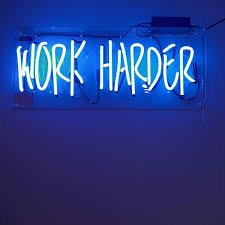In a world dictated by the social media presence of various Instagram pages encouraging us to work harder and "hustle" throughout the day, toxic productivity is a culture that is commonly found within the workspace. Linked closely to hustle culture and workaholism, it refers to an unhealthy and extreme obsession with productivity which never seems to be satiated. Preaching ideals of meritocracy, it compels people to exhaust themselves on the road to success, leading to a cycle of toxicity which can negatively impact several aspects of one's life if left unchecked.

The roots of toxic productivity and the unlimited workload mainly lie in the concept of capitalism as we know it today. In an economic system where turning greater profits is considered to be more important than the welfare of individuals, society has largely been conditioned by corporations and businesses to invest themselves into higher productivity. People are no longer seen as just humans, but are now machines attempting to outdo others in the rat-race that is life; their worth is measured in terms of the output they produce within the economy, both in terms of money as well as the actual work done. Modern capitalism and neoliberalism emphasises the necessity of personal gain, and governments and firms have no qualms exploiting the essential nature of the culture persisting within society to get people to work harder and earn more. The inception of the 'American Dream' in the post World War II era popularised the possibility of practically anyone being able to work hard and make a name for themselves, and this has survived into today's culture to form what we know as toxic productivity.
Although it is a phenomenon that has persisted for several decades now, it is something that has especially become prevalent during the ongoing pandemic. Stuck at home with not much to do, it isn't an uncommon sight to find people boasting about how much writing they've gotten done during lockdown, or that they've been cooking and baking a lot, or started an entire organisation for social work. Feelings of guilt, unease and dissatisfaction are common emotions that are experienced in such situations - watching others thrive in such uncertain times, while we may be barely scraping by, would undoubtedly cause mental stresses and strains, making us feel inadequate and insecure. However, the widespread use of technology to stay in touch even in the midst of a pandemic has beguiled us regarding the true sobriety of the situation; although life may not be too different for the privileged sections of society, we are still experiencing a completely unprecedented period of global history. The very fact that we have managed to survive by varying degrees in the midst of a deadly virus is applaudable, regardless of whether or not we have written the next Pulitzer-winning novel within this timeframe. The blending of our personal and professional lives as we have converted our homes into our classrooms and workspaces further propagates toxic productivity. There is no longer any clear distinction between the time devoted to work or oneself, and as the lines begin to blur, the former gradually begins to encroach on the latter as society adjusts to the "new normal", another agenda used by corporations for their own motives.
In attempting to combat toxic productivity, one may fall into the other end of the spectrum which takes the form of procrastination, begging the question, "how much is too much?" A perfect balance needs to be maintained between prioritising our own welfare and the work we are required to do. Frequent mental health days to focus on ourselves and our hobbies outside of school and work can go a long way to prevent burnout and mental exhaustion. However, what needs to be majorly tackled is the nagging voice in our head which declares us lazy and unproductive when we choose not to do any work for our own sake; the faster we realise that this voice is a manifestation of everything that has gone wrong with the festering scene of capitalism and the corporate world, the sooner we can get back on the right track to putting our own well-being first.